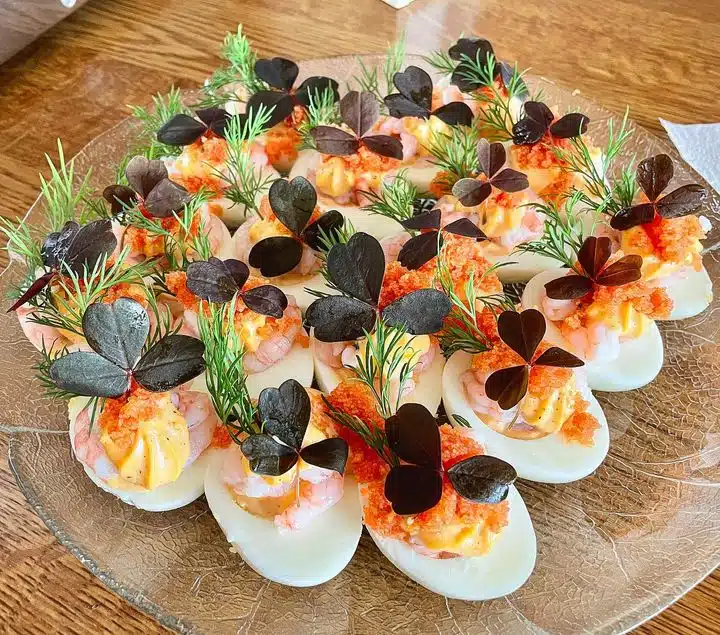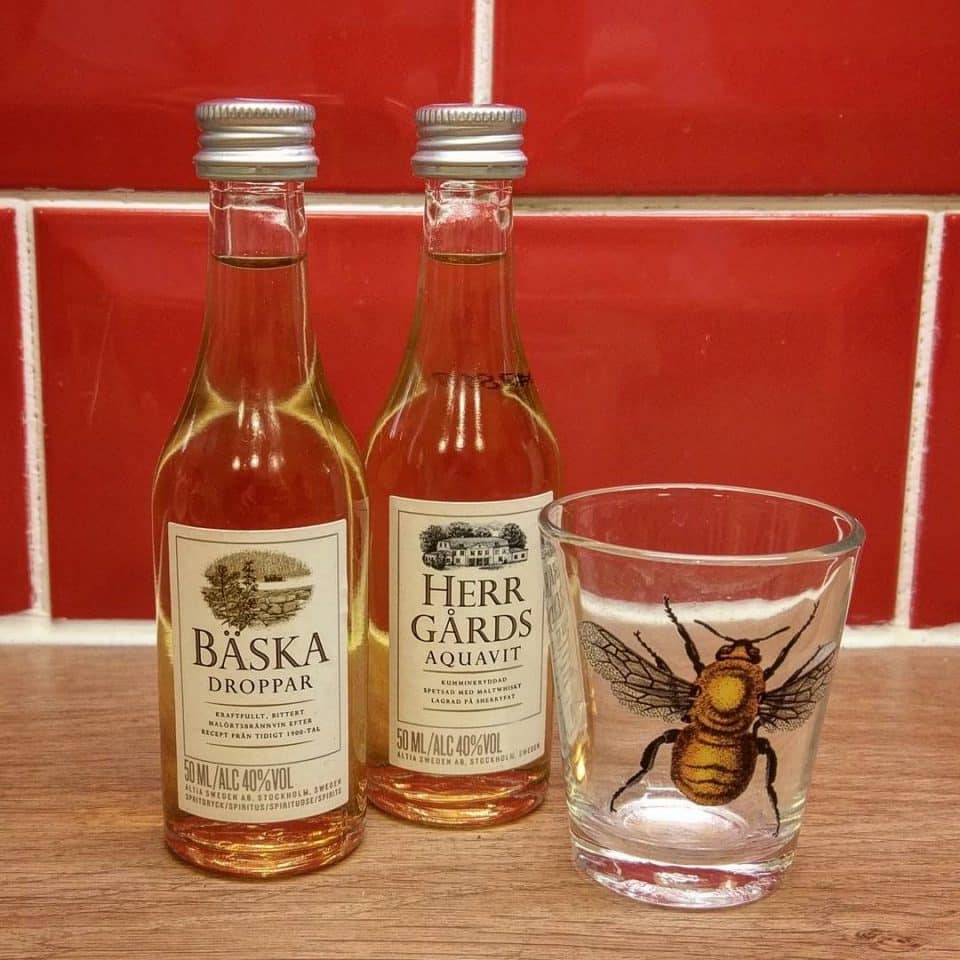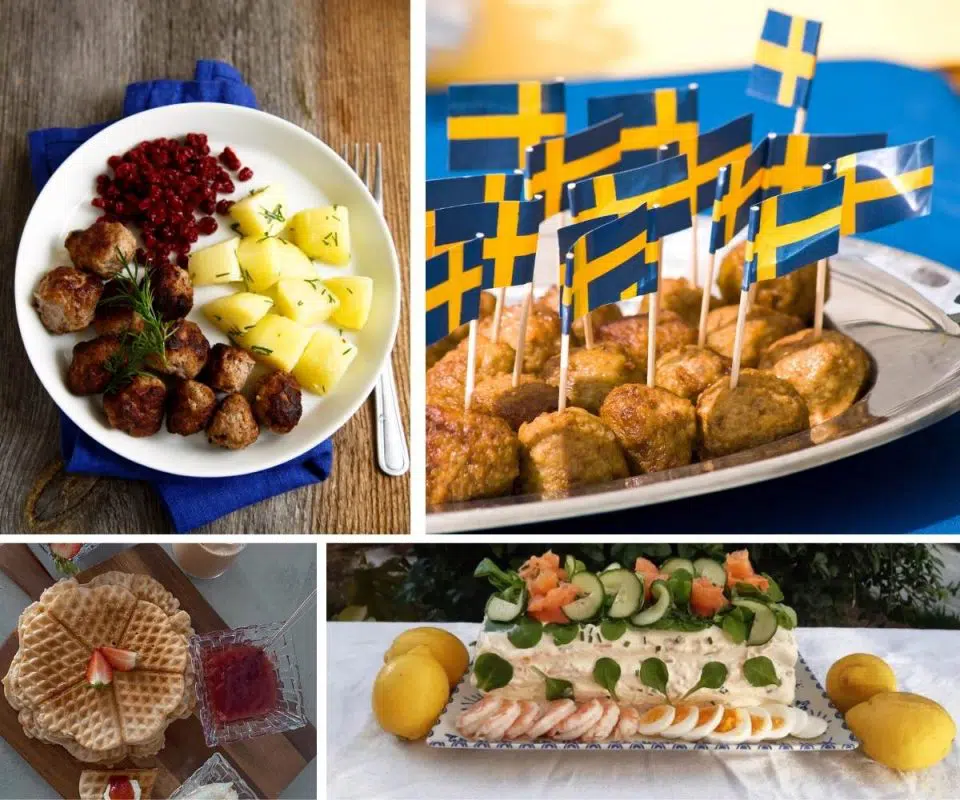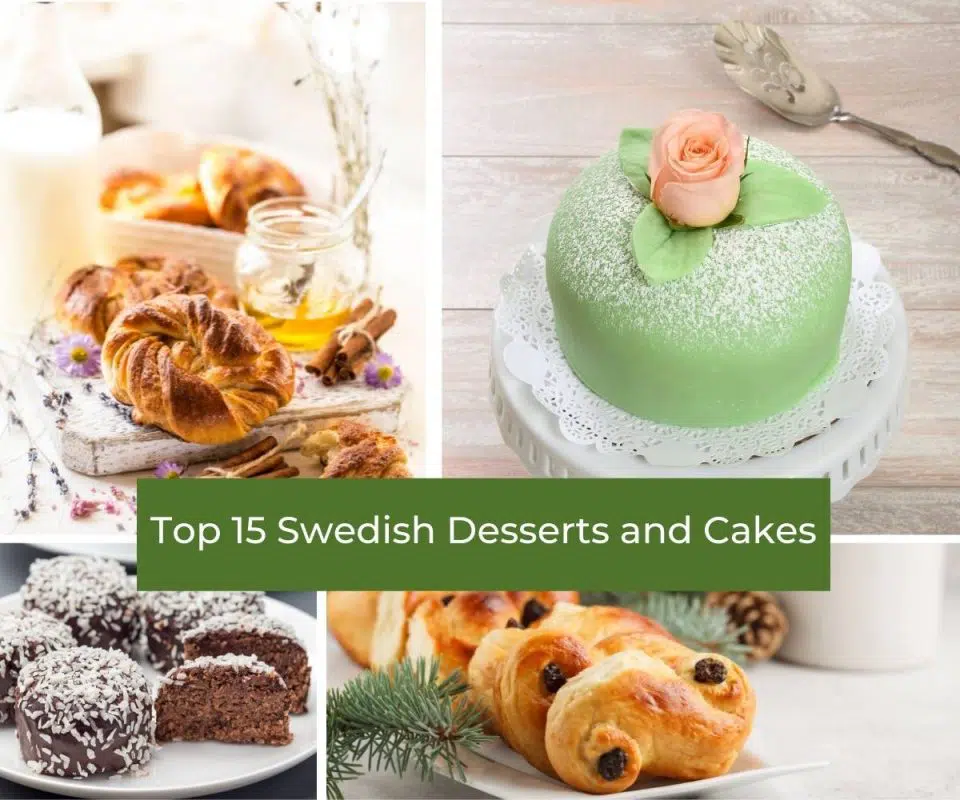Easter celebrations in Swedeb usually start with an Easter wreath, a few branches of birch decorated with different colored feathers and other Easter decorations. Once this decoration is in place, Easter has begun.

Maundy Thursday is a day of purification, when the church celebrates the first communion. According to the legend, it is also the day the witches fly off to Blåkulla, a legendary Swedish island. To frighten them off, all brooms need to be hidden, chimney dampers closed, and rifles, or more usually today, firecrackers are shot into the air.
Easter bonfires, mostly lit on the West Coast in Dalsland and Närke, were also a way to keep track of the Easter witches. Nowadays, small children dress up as Easter witches and go round delivering Easter cards and asking for candy.

Anyone who grew up in the first 60 years of the 20th century will be able to tell you how terribly boring it was on Good Friday. Everywhere it was still and quiet, remembering the great sorrow of Jesus dying on the cross. Do no chores, play no games, eat simple food, and turn off the radio and tv. Shops, restaurants, clubs, and cinemas would shut all to observe the solemnity of the occasion.
That all changed in the 1970s when Easter became a time to celebrate with good food. Painting eggs in different colors is an old Christian custom. After the long fast, we can finally eat well again: salmon, lamb, a whole host of different sandwiches, and, of course, eggs – no eggs, no Easter.
The hen is a symbol of Easter, when we eat eggs like never before. The arrival of spring means longer days, so the hens perk up and start laying more eggs, the symbol of rebirth. But we don’t just eat the eggs; we also paint them up in bright happy colors, and used to give them away as gifts. Today the eggs tend to be plastic or cardboard filled with candy or a small gift.

We also play games with eggs, such as egg picking and egg rolling, both of which are still popular. Egg picking is a game where everyone holds an egg in their hand and bumps the top against another person’s. The winner is the one with a whole egg left at the end. Egg rolling is a bit like boules, although you roll the eggs on a board and try to hit other people’s eggs.
Of course, during the 6-week long fast, eggs are forbidden. And that is exactly the time hens are laying more eggs. By the end of the fast, there are plenty of eggs!
Now let’s round up some of the most popular Swedish Easter foods.
1. Swedish Deviled Eggs

The star of the Swedish Easter buffet are deviled eggs. While deviled eggs are popular in many European countries and North America, Swedish deviled eggs are topped with prawns and roe. Simply sublime!
2. Salmon
Salmon in all forms is a favorite Easter food in Sweden, for example, a quickly-grilled salmon steak, topped with prawns and a tasty sprinkling of herbs.
3. Pickled Herring

Whether you prefer classical onion herring or creamy mustard herring, the choice of Swedish herring dishes is innumerable.
Pickled herring is an absolute favorite and is eaten on all Swedish holidays, Christmas, Easter, and Midsummer’s eve. The pickled herring is served with boiled potatoes, a Swedish sour cream called gräddfil, and finely chopped chives.
This dish is always served with Swedish schnapps on the side.
4. Jansson’s temptation
Jansson’s temptation is a traditional creamy Swedish gratin, served at Easter, midsummer and Christmas. With the special taste of anchovies mixed with potatoes, leek, cream, and cheese, you will love this delicious gratin.
5. Swedish Meatballs

Swedish meatballs are probably Sweden’s most internationally recognizable dish. Every family has their own recipe and everyone thinks their grandmother makes the best. The typically Swedish gravy, brunsås, or brown sauce, is a thick creamy gravy made from broth and cream or milk. They are served with small fried “princesausages” cut at both ends.
6. Garlic-studded roast lamb
Garlic-studded roast lamb is a popular spring dish in Sweden and especially popular for Easter. It is usually served with a good-sized portion of creamy potato gratin.
7. Potato Gratin with Leeks & Garlic
For herring and salmon, Swedes mostly opt for a side of boiled potatoes, but for lamb, this potato gratin with leeks and garlic is the most popular choice and to be honest, it’s so much better than the former.
8. Knäckebröd and Kavring
No Easter is complete without Swedish Knäckebröd and Kavring. Both are made with rye, but Knäckebröd is dried for a long time at a low temperature in the oven, making it extra crispy.

9. Cheese Board
Who can resist a delicious looking tray with different cheeses and savory crackers? Cheese boards are a popular Easter treat in Sweden.

10. Easter Cake
Yummy!! Apart from the cheese selection tray, the creamy Easter cake is probably the tastiest part of our Swedish buffet.
You can opt for some simply, but tasty semla, some decadent Swedish chocolate cake, or the famous Swedish Princess cake.
11. Traditional Drinks

All these different dishes makes you thirsty… So, maybe you would like a snaps for the herring, påsköl or rött vin for the rest of the food and…. julmust for the children. Enjoy

 !!
!!
Related: Top 20 Favorite Swedish Dishes

Related: Most Popular Swedish Desserts

The post Swedish Easter in the Past and Today appeared first on Chef's Pencil.
from Chef's Pencil https://ift.tt/jROpIlr
via https://chefsspenncil.blogspot.com

No comments:
Post a Comment